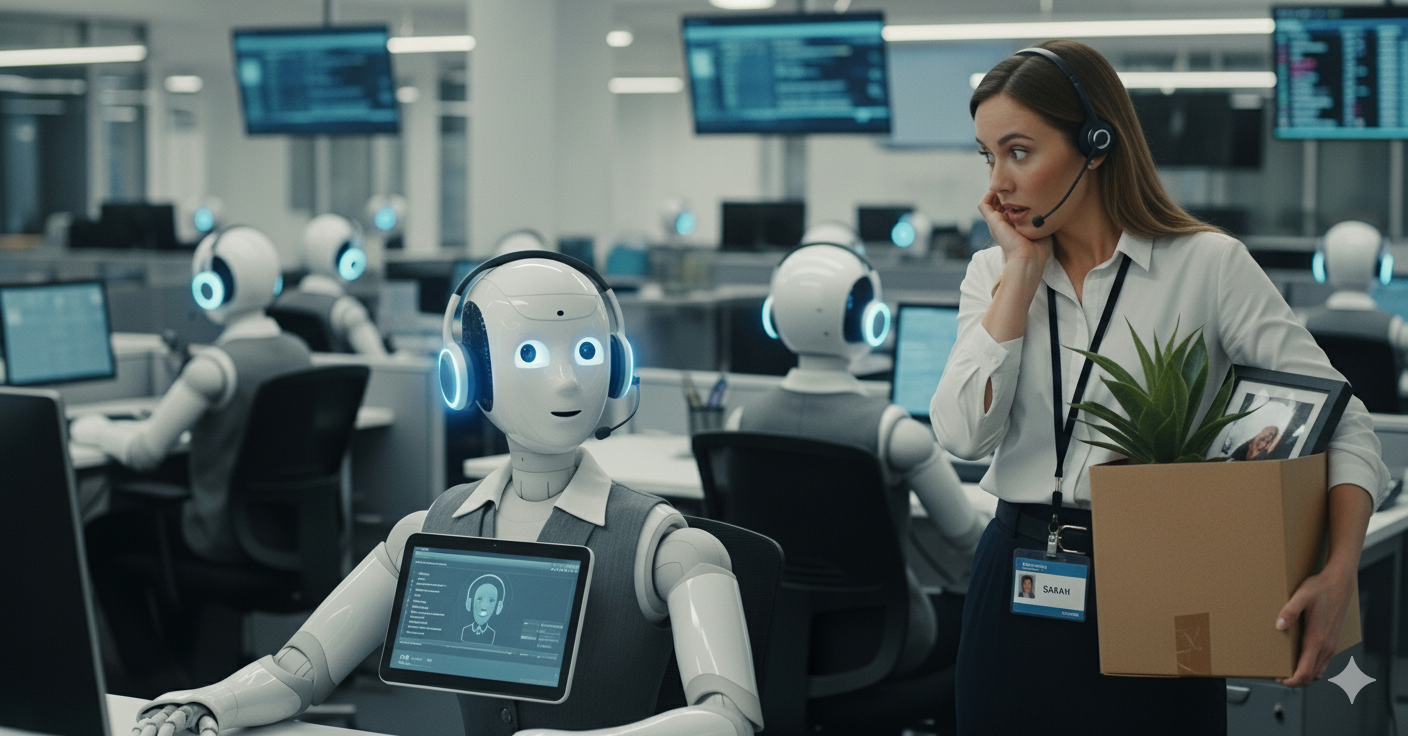Introduction
Salesforce Cuts 4,000 Support Jobs, Relies on AI Agents — a move that signals a major turning point for the tech industry and the global workforce. As Salesforce embraces AI-powered automation, the consequences for employment, customer service, and the wider economy are profound.
Salesforce CEO Marc Benioff recently claimed that the company’s AI customer service agents are already working with 93% accuracy, underscoring why Salesforce feels confident replacing human roles with automation according to Business Insider.
Why Salesforce Is Turning to AI Agents
Salesforce announced it will cut 4,000 support jobs in 2025 while increasingly relying on AI agents to handle customer inquiries. The company argues that this transition will reduce costs, speed up resolutions, and provide 24/7 support without human limitations.
However, this also raises concerns about over-reliance on automation and its impact on customer experience. While AI agents can handle routine queries, complex or emotionally sensitive issues often still require human intervention.
Impact on Employees and the Job Market
The decision to cut 4,000 Salesforce jobs highlights the broader trend of AI replacing customer support roles across industries. Employees who once provided front-line assistance now face an uncertain future, with limited opportunities to transition into higher-skilled positions without retraining.
This echoes similar layoffs in tech companies such as IBM, Meta, and even Google, which have adopted AI-driven automation strategies.
👉 Read more on our recent coverage of AI-Powered Hiring to understand how automation is reshaping HR practices.
Customer Experience: Better or Worse?
Salesforce insists that its AI customer agents are designed to enhance user experience, offering faster response times and consistent answers. But critics argue that removing human employees could harm brand loyalty, especially when customers feel unheard.
A recent study from Stanford suggests that while AI can handle repetitive tasks effectively, human empathy remains irreplaceable in customer-facing industries. Read the original Stanford research summary here.
The Bigger Picture: Workforce Replacement by AI
This development aligns perfectly with the global trend of AI-driven workforce replacement. From call centers to data entry, AI is rapidly taking over tasks traditionally done by humans.
Salesforce’s bold step may set a precedent for other corporations, signaling that AI adoption isn’t coming — it’s already here.
For employees, this underscores the urgent need to invest in reskilling and upskilling, particularly in fields like AI management, data analytics, and digital transformation.
👉 Learn more in our article on Generative AI in the Workplace.
What’s Next for Salesforce and Its Workforce?
While Salesforce expects AI to drive profits and improve efficiency, the company will need to carefully manage customer trust and employee backlash. Regulators may also step in to ensure responsible use of AI in employment practices.
In the long run, this decision may serve as a case study for how companies balance cost savings with ethical responsibility in the age of AI.
Conclusion
Salesforce Cuts 4,000 Support Jobs, Relies on AI Agents — this headline captures both the promise and peril of today’s AI-driven economy. For businesses, the message is clear: AI is no longer optional. For workers, it is equally clear: adaptability and lifelong learning are essential for survival in this rapidly changing landscape.




